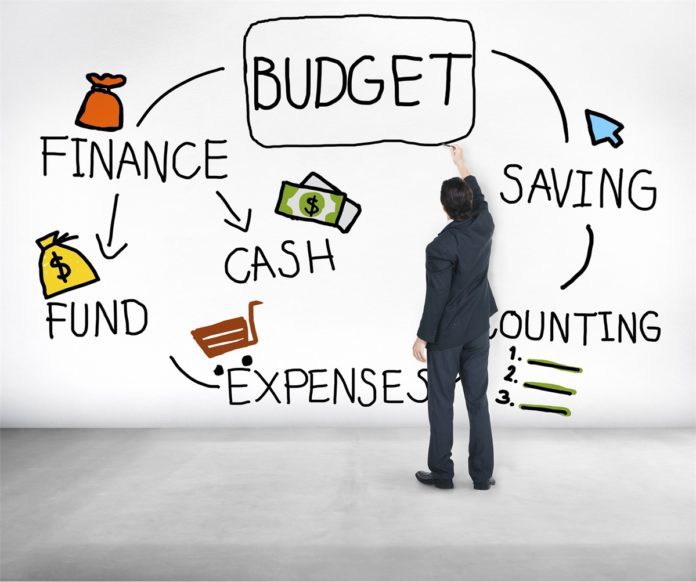Learning how to budget is such an essential part of living as an adult. Unfortunately, some young people coming out of college don’t have the budgeting skills they should have, which could potentially stunt their financial growth and success.
Let’s be honest. Life can be hard but understanding how to budget makes everything easier and can eventually lead to financial freedom.
Why learn to budget in your 20s?
We need to stress the importance of not only learning to budget but learning how to do it in your 20s. Most people have student loans and other unforeseen expenses when entering the workforce which can divert attention away from budgeting.
Like any skill you learn in life, the earlier you start the more time you’ll have to grow that skill. Budgeting is no different. If you start caring about learning how to budget in your 20s, you’ll be way ahead of the game. Learning the basics now will set you up to have plenty of options in the future.
Related: The Importance of Building Credit
These options include having money to make big investments like buying a house, having kids, or starting your dream business. Without having the base knowledge of budgeting these options might not be possible or will at least be much more complicated.
If you want to be in control of your future, then it’s time to start taking budgeting in your 20s seriously.
The right mindset
What should you be doing with your money when you’re in your 20s? We’re going to keep this general just to give you an idea of how it should be done because everyone has their own specific scenarios that they need to consider.
An important aspect of this is to never cheat with the numbers. Lying to yourself with your budget will only make things worse. Instead, find out what the problems are with your budget now so they can be fixed for the future. Just be honest with yourself and have the attitude to make it work.
Make it work simply means being in the green every month, whether you save $1 or $1,000. Just make sure every month you have a positive cash flow.
Let’s put it this way – if you can make it work at 22 years old, you can make it work every year afterwards too. It should only get easier financially for you from here on out if you have this mindset.
Think about it. You should continuously make more money every year through market adjustments and raises meaning the opportunity is there to save more each year. This is clearly a recipe for success going forward.
How to budget in your 20s
The very first thing you need to do is to track your spending for at least a month, but we recommend for 2-3 months. No lying. No cheating. Just lay it out there so you know exactly what you’re working with. Once you have concrete numbers then you can begin to strategize your path forward.
A simple way to set up your budget is to try and save 20% of your income every month. This leaves 80% for everything else – rent, car, food, utilities, entertainment, etc. If you find yourself short of the 20% savings goal, there are always things you can do to change that.
An easy answer most people will say is ‘make more money’. That is easier said than done though. Most likely, you can’t just walk up to your boss and demand more money. But you could always pick up a second job or start a side gig to increase your income. Working a few extra hours during the week or on the weekends is worth getting to that 20% savings goal.
If getting a second job doesn’t sound interesting to you or still leaves you short of the goal, then turn your focus to the other side of the budget – the expenses. Where can you save money?
Now, you can’t just go and cut anything and everything to make this work. Spending money on having fun is an important part of life and is great for mental health. But that doesn’t mean we can’t slice a few things off the expense sheet.
Cutting Expenses
Start simple by looking at how much you spend on eating out or on subscriptions. Can you cook more and save money from limiting spending at restaurants? Can you find a cheaper gym to go to or can you work out at home to save costs? These are just a couple of examples.
Everyone has their non-negotiables. Whether it’s chick-fil-a every week, a Netflix subscription, or date night with their significant other. A good rule of thumb is if you won’t care about not having something in a few months then it’s probably not worth paying for it now.
Separate the non-negotiables and then ask yourself how much you really need everything that’s left.
We have to mention probably the largest number on your expense sheet – housing. A good way to reduce this number is to get a roommate to lower your rent and utilities payments. Or even move to a cheaper place or neighborhood if it’s something you’re willing to do.
Down the road you can also look into buying a house, which could actually save on your monthly budget in some cases, especially if you apply the house hacking technique.
Keep an emergency fund
First and foremost, saving up to have enough to cover your monthly expenses for 3-6 months is necessary. In case that life disaster hits (i.e., job loss, car repair, unexpected expenses, etc.) you need to have a safety net. Whether you feel comfortable with 3 months, or 6 months, or more is up to you. But typically, 3-6 months is common.
When budgeting in your 20s, it’s also smart to lean more on the conservative side with this because as previously mentioned – this is a safety net in case the worst happens. If your monthly expenses total $3,000 then make sure you have at least $10,000 in your account (for 3 months).
If you aren’t there yet that’s what you need to do first in case emergency cash in needed. I understand that this might take a while for some people, but this is the first move to successfully budgeting in your 20s
How to pay off college loans
Loans are tough to deal with but at this point they’re not just going to disappear. There is a positive outlook on this however. Having loans forces you to develop a back-to-the-wall mentality that helps mold you into a person who will always be in control of their finances. You’ll learn how to make it work.
Think of having loans (or extra expenses) as training wheels to teach you how to budget in your 20s. As soon as those loans disappear, you will have that extra money to use but you’ll know that you don’t really need it. That money could be used for investing in assets like stocks or real estate.
There are two solid options when considering what to do with your college loans:
Pay them off as soon as possible.
or
Have a consistent payment plan in place.
Pay off college loans as soon as possible
Choosing to pay your college loans off quickly means to pay more than your scheduled payment. If you can pull that off that could mean having to double or triple up on loan payments each month. Although challenging, this could significantly eliminate the time it takes to pay them back.
Here’s a quick estimated example: If you have $30,000 in college loans, your monthly payments will be around $300 per month, using an average of 5% as the interest rate. If you pay an extra $200 per month, you will kill your loans in a little over 5 years as opposed to the normal 10 years. And cherry on top – you save almost $4,000 in interest payments over the life of the loans!
Make the extra monthly payment $400 and now we’re talking about crushing your loans in under 4 years and saving over $5,000 in interest. Easy call here to make the extra payment if you can make it work.
Have a consistent payment for college loans
Option #2 is for everyone who cannot make extra payments due to a tight budget or for someone who wants to save money for additional investments. Find a comfortable amount that you are willing to pay and stick to it.
How much do you ask? For starters, paying the minimum payment on college loans is a must. To ensure they will be gone in the average ten-year timeframe you have to pay the minimum recommended payment.
Now, this doesn’t mean that you should only pay the minimum payment though. If you are comfortable with paying a little more each month then feel free to do so. Just be consistent! Consistency is the key to get rid of college loans and for budgeting in your 20s in general.
College loans are not like a mortgage loan where you’ll have the opportunity to gain equity over time, no matter how long it takes to pay off. It’s just debt that will hurt your financial life as long as they’re around. They don’t give you anything in return for paying them off (unlike a house that you can live in while you gradually gain equity).
Move the rest of your money out
Okay, your emergency fund is loaded up, have a plan for your college loans, and you still have extra savings. Now what?
Keep the cash moving.
You should be living cash poor in your 20s. This doesn’t mean actually having so little money that you can’t afford to do anything. Unfortunately, having your savings loaded up in a bank account is going to do nothing for you in 2023. Keep your emergency savings amount at where you feel comfortable and take the extra cash and put it somewhere else.
Like we alluded to earlier, start by tossing extra cash at your college loans. Then, move it somewhere that creates more financial gain for you than in a simple bank account.
For a few quick examples, you can start simple and utilize one of the high interest savings accounts out there (currently around 4% interest) to save up for a down payment on another investment, such as a house. Or maybe invest in the stock market which shows returns of approximately 7% year over year.
Choose whatever path you’re comfortable with but don’t just let it sit and commend yourself for stockpiling money in your bank account. Earn the money, save the money, and keep it moving towards better investments.
Why learn how to budget?
How you structure your savings is up to you but learning how to budget in your 20s is a must. It will give you the chance to live the life that you’ve always wanted. It’s the foundation to everything related to money that you’ll come across in the future.
Imagine being financially stable with the chance to invest in businesses, real estate, and other future endeavors. Picture yourself having more time to spend with friends and family and more time to travel. On top of all that, envision a life where you have a peace of mind when it comes to your finances.
Sounds like a dream, right? Actually, it’s a very real scenario if you start taking budgeting seriously now!


